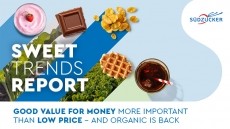UK report urges tax on sugary drinks to improve children’s health

The report, called “A Children’s Future Fund”, highlights the high cost of diet-related illness to the National Health Service, estimated at £6bn (€7bn) a year. As a first step, it suggests that a 20p tax on each litre of sugary soft drinks could raise about £1bn (€1.17bn) each year, and recommends ring-fencing the revenue to set up a fund for improving children’s health.
In the longer term, it says that an overhaul of food and beverage taxes could reflect the relative healthiness of foods and beverages – and foods that are not environmentally sustainable could also be considered for taxation.
In the short term, Sustain urged the chancellor, George Osborne, to include a sugary drinks duty in his budget on March 20.
Backed by 61 organisations
The proposals have been backed by 61 organisations, including the British Dietetic Association, City University’s Centre for Food Policy, Consensus Action on Salt and Health, Food Ethics Council, and the World Cancer Research Fund.
Mike Rayner of the Department of Public Health at Oxford University and Chair of Sustain said in a statement: “Just as we use fiscal measures to discourage drinking and smoking and help prevent people from dying early, there is now lots of evidence that the same approach would work for food. This modest proposal goes some way towards making the price of food reflect its true costs to society.
“Our obesity epidemic causes debilitating illness, life threatening diseases and misery for millions of people. It is high time government did something effective about this problem.”
The report says that sugary drinks are the logical starting point for using taxes to encourage healthier choices, considering that such drinks have no nutritional value, research has linked their consumption to increased risk of obesity and dental decay, and “there are successful precedents for applying duties on them in other countries”. It cites Finland, France, Hungary and certain states in the USA as examples.
Responding to the report, UK industry body the Food and Drink Federation said that food and drink makers were committed to efforts to improve public health, including reformulating products, creating healthier options, and providing clear nutritional information.
FDF director of communications Terry Jones said: “Soft drinks are currently taxed at the standard VAT rate of 20%. Any additional taxation of food will hit the poorest families hardest at a time when they can least afford it.”


























